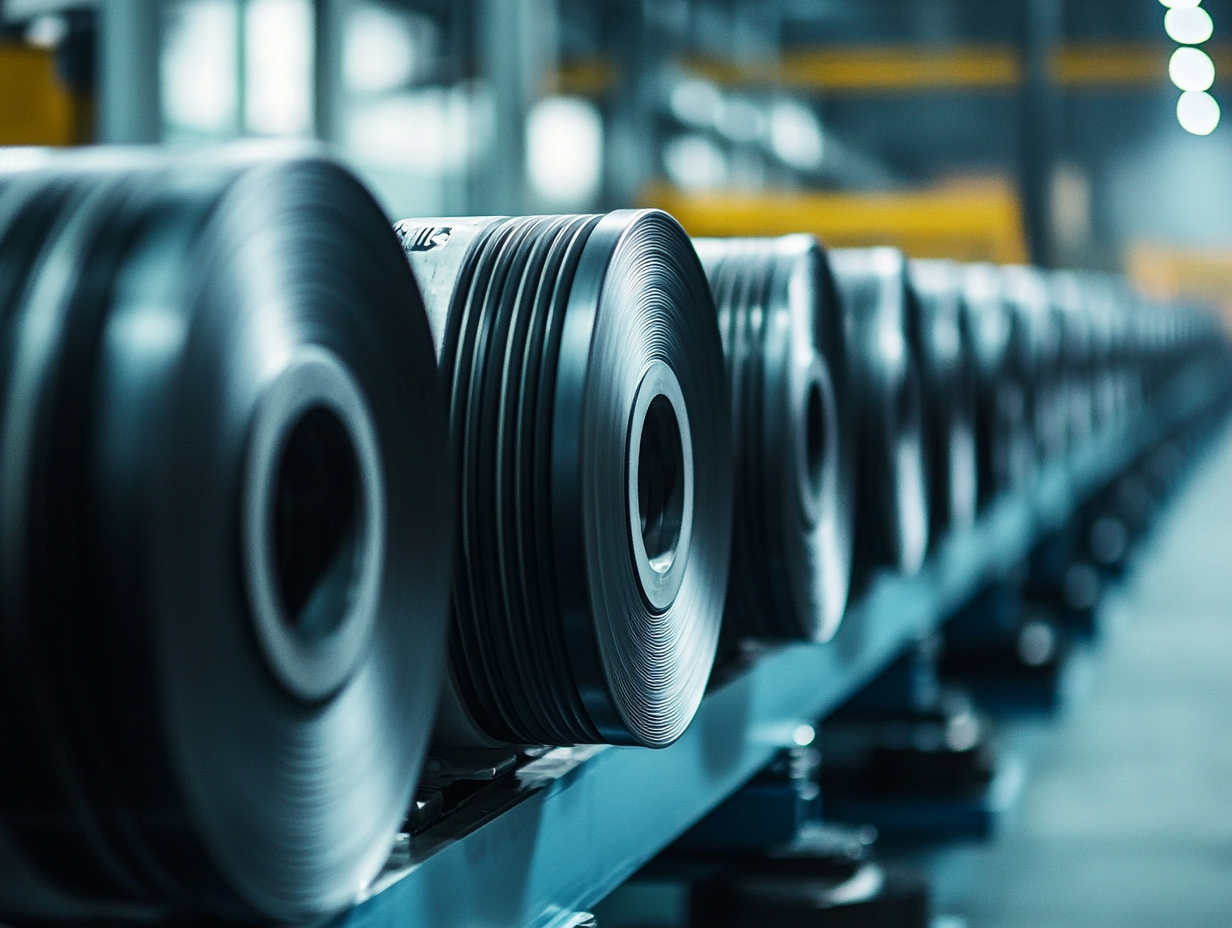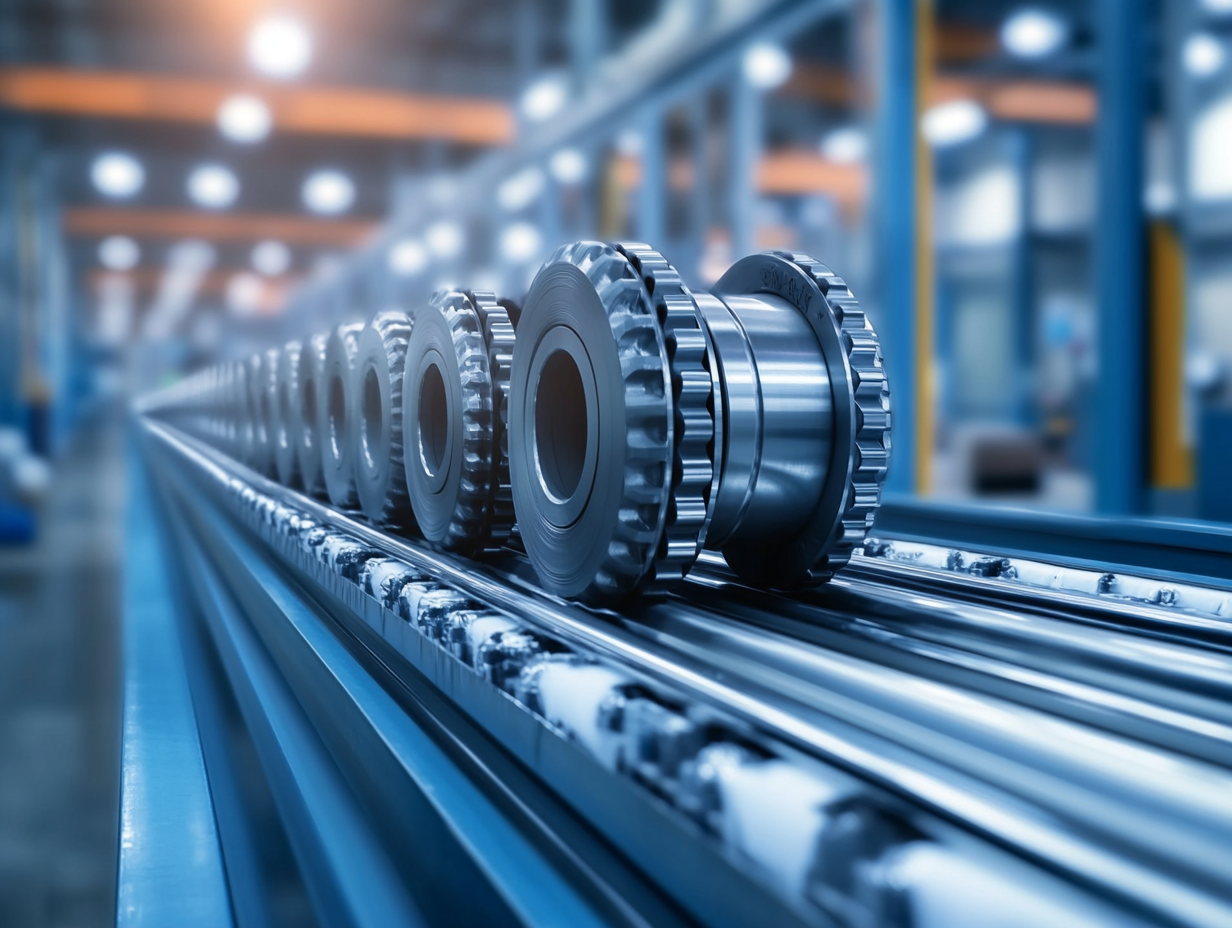Table of Contents
The effectiveness of material handling systems, due to the current pace of global supply chains, is dependent upon the precision and quality of their components. Among these components, Drive Rollers are very important in facilitating the movement of merchandise to and from warehouses and production lines. The choice of good quality Drive Rollers also presents a unique set of challenges that supply chain managers have to deal with. With varying standards, materials, and technology, an understanding of best practices in selecting Drive Rollers is of utmost importance for ensuring the optimization of operational performance while minimizing costs.
Moreover, as businesses begin operating on an international scale, there are mounting challenges posed by sourcing delays, complications with international shipping, and varying regulatory requirements in a multitude of jurisdictions. If not carefully managed, these challenges could lead to extended downtimes and the inefficiency of the supply chain. In this blog, we will groom our analytics on the prominent factors that affect Drive Roller selection and how companies can counter these hurdles to facilitate working fluidly in their supply chains.

Challenges in Sourcing High-Quality Drive Rollers
Sourcing high-quality drive rollers is a challenge of global supply chains, especially as the market of conveying equipment continues on its journey to maturity with an expected revenue generation of $55 billion by the year 2030. Problems related to quality assurance are being faced increasingly by companies, as inconsistent patterns of manufacturing create variations in performance of the drive rollers thus affecting the overall efficiency of the machines. In addition, supply chain management across various geographical locations can introduce random variations in product quality. Increased recent trends show an increasing requirement for suppliers of innovations and high-quality production. As these industries modernize, the requirement for dependable and effective components such as drive rollers has also increased. Manufacturers are expected to upgrade their sourcing strategies and focus on suppliers who not only meet the required quality standards, but also show active interest in and are involved with newer technological developments in manufacturing processes. Solving these issues will become imperative to retain competitiveness in a rapid commodity shift.

The Impact of Material Selection on Performance
Since nowadays regulatory compliance is extremely critical in global supply chains, especially for firms concerned about getting products of the highest quality into the hands of customers. Recent trends highlight the necessity to strive for a compatible integration of local industrial development into supply chain activity in tandem with national goals of sustainable development. This adherence to regulations builds confidence among the society and the investors, especially in sensitive areas such as agriculture and food safety. Regulatory compliance alone cannot help an organization grow; innovative strategies that couple cultural integration with technological progress are a must. For example, better combining traditional sectors with modern logistics networks would enhance both efficiency and product quality. Companies need, therefore, to develop sturdy compliance frameworks that can stand prudently above mere regulatory compliance in today's ever-changing regulatory environment and also forward the broad objective of high-quality development in all other industries.

Evaluating Supplier Reliability and Standards
Quality drive rollers are critical elements in the context of global supply chains. Best practices adopted at this point will bring the highest impact in quality assurance. The cumulative test methods like state-of-art stress test along with endurance evaluations are essential in deciding both syntax and performance of these life-critical constituents. These two validating processes have to fully integrate into the manufacturing system at varying phases or levels of the overall production system to curtail their risks.
Recent advancement in big data technology displays the role of big data in improving quality assurance. As visible in current manufacturing lines, data can be viewed in terms of the intake of the raw materials and the exit of the final product. This way, it is efficient in tackling the repetitive performance and causes making it possible to collect, and analyze and regulate feedback immediately if anything is found wrong with the parts. Thus, innovative ways of doing things will prove beneficial in the global supply chain while putting the competition ahead.

Navigating Regulatory Compliance in Global Supply Chains
The assessment of supplier reliability and standards is one of the key factors for businesses that depend on quality drive rollers for their supply chains. In the current fast-changing market scenario, interest in evaluating suppliers is steadily rising to diminish the risks associated with any potential production disruptions. The companies need to ensure that their suppliers conform to recognized industry standards and deliver quality products on a consistent basis.
With the events of the recent past, it has become clear that supply chain diversification can improve resilience. For example, companies are implementing various strategies for procurement so as to reduce over-dependence on a single supplier, given such concerns that have arisen in the face of geopolitical tensions and trade barriers. This diversification ensures reliability and creates leverage within an increasingly complex global context. Therefore, while developing partnerships, companies should continually assess supplier performance so that they can maintain excellence in their operations and fulfill customer expectations.
Best Practices for Quality Assurance and Testing Techniques
Material selection counts among the chief parameters relating to the performance of drive rollers found in global supply chains. Unreliable and inefficient parts adversely affect operational efficiency, and in some circumstances, are critical to precision and reliability. Therefore, the right selection of materials, resistant to abrasive and environmental stressors, will guarantee that drive rollers withstand extremely demanding applications and thereby perform optimally for a long time.
Recent debates have revealed the necessity for adhesion standards in various industries, stressing the paramount importance of proper material selection in producing better products. In an ever-increasingly competitive space, echelons of innovation and turnaround realization take charge in dictates the requirement for manufacturers to emphasize using good materials to give their products a reasonable chance against ever-changing consumer preferences in the marketplace. The advanced materials application in drive rollers may then lead to reduced maintenance cost and a long service life, contributing positively to the enhanced performance of the supply chain.
FAQS
Evaluating supplier reliability is crucial for businesses to ensure quality in their supply chains and to mitigate risks associated with production disruptions.
Recent trends include a focus on diversifying supply chains and exploring varied sourcing strategies to avoid over-reliance on single suppliers amidst geopolitical tensions and trade barriers.
Supplier diversification enhances resilience, ensures reliability, and fosters a competitive edge in a complex global landscape.
Regulatory compliance is critical to ensure high-quality product delivery and to build trust among consumers and investors, especially in sectors like agriculture and food safety.
Companies can adopt innovative strategies that integrate local industry development, cultural considerations, and technological advancements to improve compliance and efficiency.
Best practices for quality assurance include comprehensive testing techniques, such as stress testing and endurance assessments, integrated at various production stages.
Big data technology allows for real-time visualization of data from material intake to final product, streamlining operations and enabling immediate feedback for quality adjustments.
Continuous assessment of supplier performance is vital for maintaining operational excellence and effectively meeting customer demands.
Companies can respond to discrepancies by implementing data-driven methodologies that allow for prompt identification and resolution of quality issues.
The goal is to meet legal standards and contribute to the broader objective of high-quality development across various industries.
Blog Tags:
- Drive Rollers
- Drive Rolls
- Drive Rollers Supplier
- Drive Rollers Manufacturer
- Industrial Drive Rollers
- Conveyor Drive Rollers
- Heavy Duty Drive Rollers
- Custom Drive Rollers